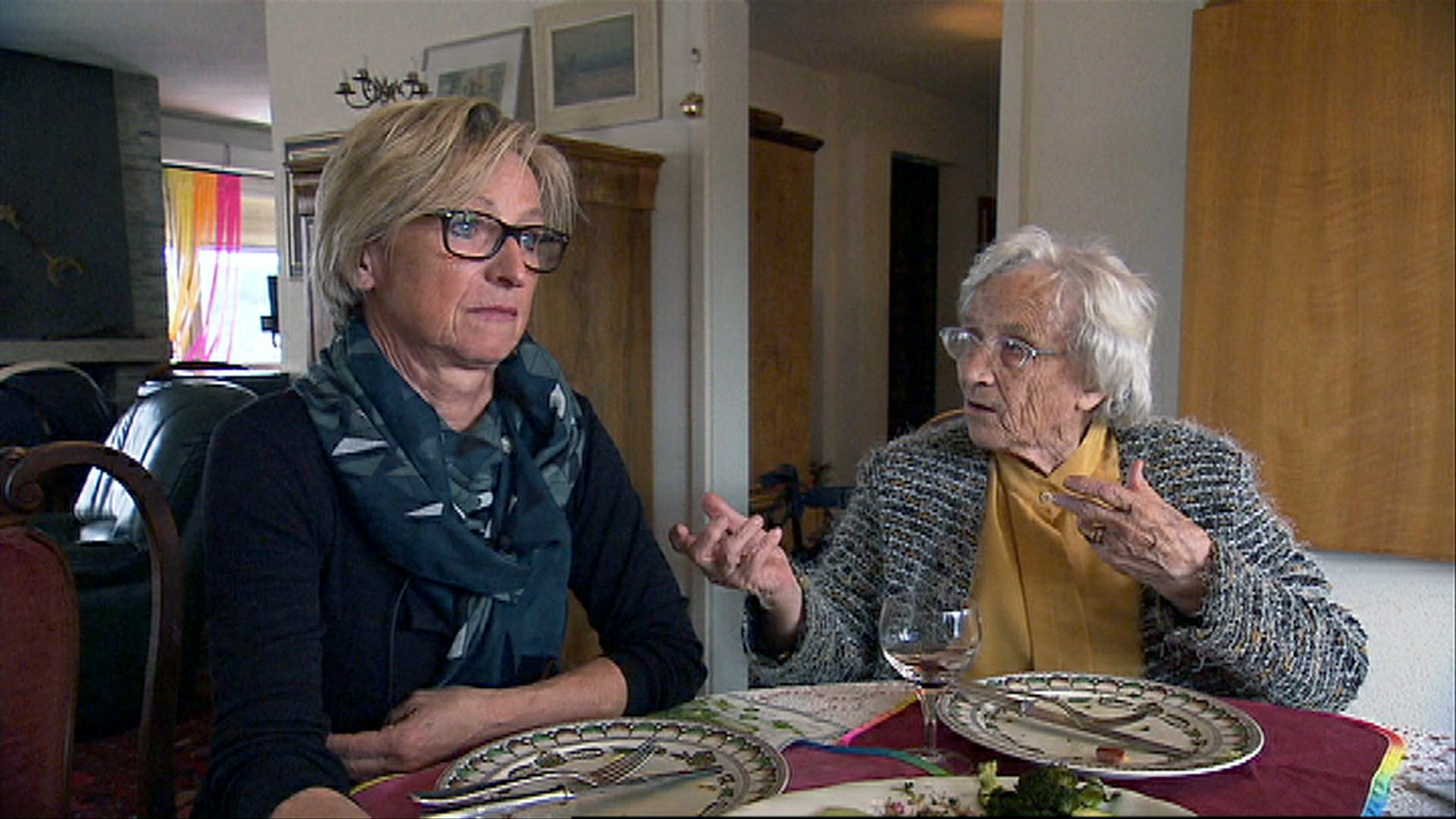Reports of assisted suicide ‘highly exaggerated’

“Switzerland’s suicide tourism industry is booming”, “One Briton a fortnight goes to Switzerland”, or “Switzerland: Destination Suicide” – are all dramatic headlines of late. But assisted suicide groups and palliative care experts say these have been greatly exaggerated.
The latest media frenzy was triggered by a study published by the University of Zurich on August 21. Researchers calculated that the number of people travelling to the greater area of Switzerland’s largest city for assisted suicide doubled between 2008 and 2012. This means that in 2012, 172 people – including 77 from Germany and 29 from Britain – travelled to Zurich.

More
Number of ‘suicide tourists’ goes up
But are the underlying figures equally as headline-grabbing? Not really. Only roughly 1.3% of around 40,000 palliative care patients resident in Switzerland made use of assisted suicide in 2012.
Dignitas, the largest association offering assisted suicide to non-residents, registered 198 cases in the whole country in 2012. According to Bernhard Sutter, vice president of Exit, another assisted suicide group, cases from abroad have remained more or less stable for the past ten years at about 225 cases per year.
The number of cases involving Swiss residents is increasing every year, Sutter explained. There were 508 in 2012, up 18% from the previous year, most of them with Exit, which has been offering its services only to Swiss citizens or permanent residents for more than 30 years.
But that’s only about half the number of people each year who take their own lives by shooting themselves or by jumping in front of trains, or who kill themselves using other means.
‘Minority choice’
“Assisted suicide remains a minority choice,” Andreas Weber, a palliative care specialist at the Wetzikon Hospital near Zurich, told swissinfo.ch.
“For a large majority, it is never an option in the first place, and for most of the people who consider it when they first face their diagnosis, it is off the cards once we reduce their concerns and explain what we can do.”
Another specialist, Maria Walshe, shares Weber’s view. “I’m only aware of a couple of isolated cases where our patients made use of that option,” Walshe said. “At the Centre for Palliative Care at the Winterthur Cantonal Hospital our job is never to shorten a life, but primarily to ease the symptoms. We talk to the patients, consult their wishes and define their needs without any prejudice.”
The only cases in which experts know patients will see it through are what they describe as “rational suicide”. Those are intellectuals who have already made up their minds in advance. They have settled their affairs, they are a member of Exit, and are ready to die. It is virtually impossible to change their minds, Weber explained.
Less than 1% of his patients will ever actually take this drastic step. These are also the observations of experts at palliative ch, the association for specialists taking care of the needs of palliative patients in Switzerland.
“For most it is not an option, but knowing that there is this option is like an insurance for people who want to keep their autonomy, their self-determination and their dignity,” explained palliative ch President Sonja Flotron.
Palliative specialists offer counselling, organise care at home, relieve symptoms and generally do everything possible to reduce concerns and improve the quality of life that patients have left.
Palliative care needs
The numbers of patients requiring this care are set to increase to more than 50,000 by 2032, according to government forecasts.

More
Who decides when it’s time to go?
Exit was also one of the first to offer palliative care more than 25 years ago, as it is obliged to inform its clients about all alternatives to assisted suicide, Sutter explained. For Sutter this is no paradox.
“Palliative care and assisted dying are not opposed, they often complement each other,” Sutter explained. “Exit receives more than 2,000 requests for assisted suicide every year, and after our consultation more than 80% of them take another path – many of them opt for palliative methods.”
Organisations offering assisted suicide have no need to tout for business. Exit Deutsche Schweiz, in the German-speaking part of the country, has about 8,000 new entries every year. In Switzerland, these organisations have more than 100,000 members – almost similar to the Netherlands and Japan – but the largest per-capita support in the world. But in the end, less than 1% of Exit’s members make use of assisted suicide every year, Sutter said.
Swiss case
Switzerland has not prosecuted assisted suicide out of non-selfish motives since 1942. Other countries also have legislations allowing for some assisted dying within the law – even for non-residents – but the Swiss have historically had a pragmatic approach and a long tradition of supporting human rights and self-determination. But the country is no exception.
“If there was a popular vote on assisted suicide it would be legalised all over western Europe,” Sutter is convinced. A large majority of the population in western European countries is in favour of a right to die in cases where people are terminally ill. In Germany and Britain four out of five are in favour of assisted dying, according to activists.
The annual 200 cases of assisted suicide by foreigners tend to cause a lot of commotion, but they are – like those by the Swiss – few and far between. They concern people who are determined and brave, with many of them having conditions that are confounding palliative care specialists.
“There are limits,” Weber explains. “Some people suffer from excruciating chronic pain in the back or in the nerves that is so diffuse that it is no longer treatable.”
For terminally ill patients with unbearable pain there is a last option within palliative care. With a palliative sedation they can be sedated so that they are anaesthetised and eventually die in their sleep. This is, however, not an option if a person wants to stay awake and remain lucid.
“For patients who want to remain fully conscious and in control, very strong painkillers and sedation are not an option,” Weber said. “These are the very rare cases where we are at our limits and where assisted suicide might be the right way.”
Palliative care
Palliative care is a multi-disciplinary approach, which includes specialised medical care for people with life-threatening illnesses. It focuses on providing patients with relief from the symptoms, pain, and stress in order to improve the patient’s quality of life. http://www.palliative.ch/External link in Switzerland has about 2,400 members, including doctors, nurses and specialists providing spiritual and social support.
Assisted suicide
Terminal cancer is the main reason why patients seek assistance of assisted suicide organisations. It is followed by neurological diseases such as the motor neurone disease amyotrophic lateral sclerosis (ALS), multiple sclerosis (MS), paralysis or Parkinson’s disease. Pain syndrome also figures. All of them are incurable, but some are not strictly speaking fatal.
Palliative specialists generally say that about 10% of their patients (and of the general population) would consider assisted suicide. Eight out of ten are either worried that they suffer unbearable pain or that they would suffocate or that they would lose their autonomy and burden their next of kin. They usually change their mind thanks to palliative care. Only 2% will actually contact an organisation.
EXIT Deutsche Schweiz has 75,000 members, EXIT Suisse Romande has 20,000 and Dignitas has 6,000 members. Smaller organisations together have another 4,000 members. More militant organisations like Dignitas and Sterbehilfe Deutschland, but are also lower-profile groups like Life Circle or EX-International, offer services for non-residents.
As the World Health Organization has no code for assisted suicide, Swiss mortality statistics since 2009 no longer register assisted suicides under types of suicide, but include them in the deaths due to the underlying diseases from which the people are suffering.

In compliance with the JTI standards
More: SWI swissinfo.ch certified by the Journalism Trust Initiative











You can find an overview of ongoing debates with our journalists here . Please join us!
If you want to start a conversation about a topic raised in this article or want to report factual errors, email us at english@swissinfo.ch.